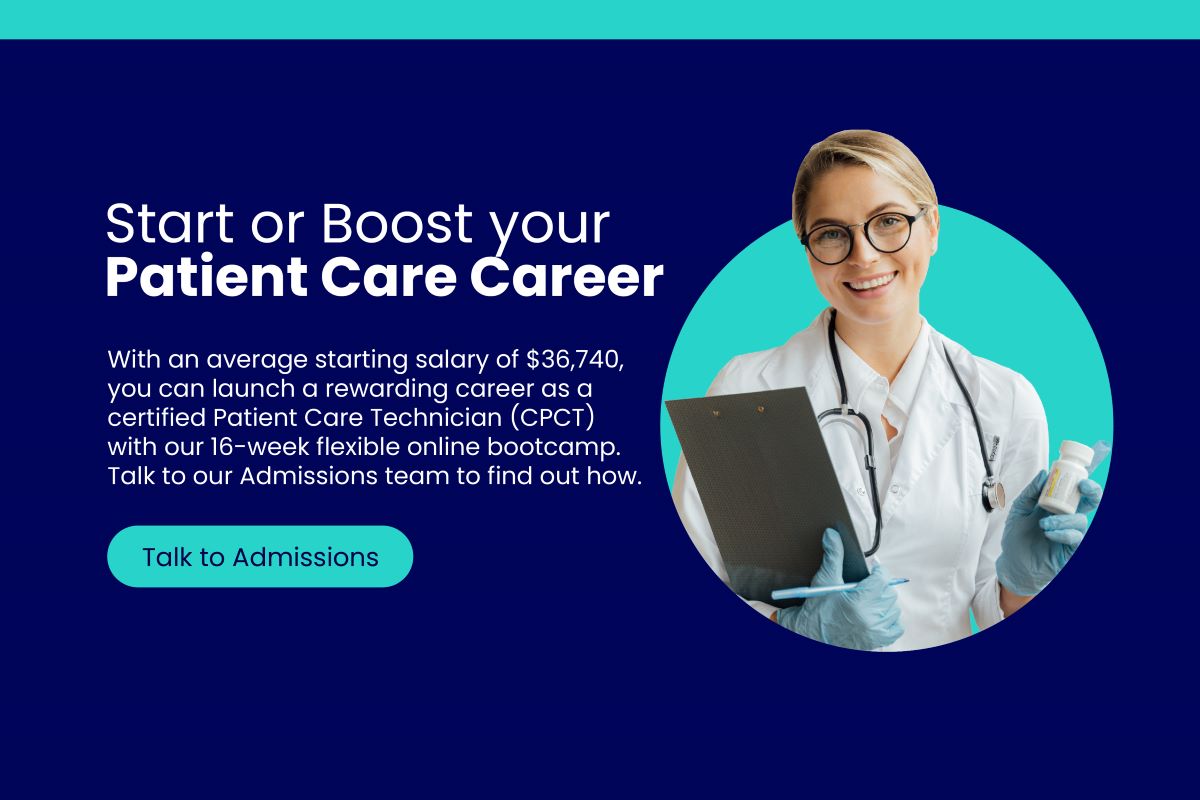In the ever-evolving landscape of healthcare, the role of a patient care technician (PCT) has become increasingly complex and technologically driven. PCTs play a crucial role in providing quality care and support to patients, and as the healthcare industry continues to integrate new technologies, it's essential for these professionals to stay updated. In this article, we will explore seven essential technologies that a patient care technician needs to learn to excel in their career and provide the best possible care to patients.
1. Electronic Health Records (EHR) Systems
Electronic Health Records (EHR) systems have revolutionized healthcare documentation. These digital records allow healthcare providers to access patient information quickly, make data-driven decisions, and ensure better coordination of care. Patient care technicians should be proficient in using EHR systems to input patient data accurately, review medical histories, and communicate effectively with other healthcare team members.
Moreover, understanding EHR systems helps PCTs maintain patient privacy and comply with the Health Insurance Portability and Accountability Act (HIPAA). By learning how to navigate EHR systems, PCTs can contribute to a more efficient and streamlined healthcare environment.
2. Medical Devices and Monitoring Equipment
Patient care technicians frequently work with various medical devices and monitoring equipment. These include vital signs monitors, electrocardiogram (ECG) machines, infusion pumps, and more. Proficiency in operating and troubleshooting these devices is crucial for ensuring patient safety and accurate data collection.
PCTs need to learn how to set up, calibrate, and use these devices to monitor patients' vital signs, administer medications, and respond to alarms effectively. They should also know how to recognize and address any issues that may arise during the use of these medical devices, ensuring that patients receive the best care possible.
3. Telehealth and Telemedicine Platforms
The COVID-19 pandemic accelerated the adoption of telehealth and telemedicine services, making them integral to modern healthcare. PCTs must adapt to these technologies, as they may need to assist with virtual patient visits, remote patient monitoring, and telehealth consultations.
Learning how to navigate telehealth platforms, assist patients with virtual appointments, and troubleshoot technical issues is essential for PCTs. They should also understand the importance of maintaining patient confidentiality during telehealth interactions and ensure that patients feel comfortable and well-informed during remote consultations.
4. Mobile Health Apps
Mobile health apps have become increasingly popular tools for patients to manage their health. PCTs should be familiar with various health apps that patients may use to track their vital signs, medications, and overall well-being. These apps can provide valuable data that can assist PCTs in providing personalized care.
Additionally, PCTs can recommend appropriate health apps to patients and educate them on how to use these tools effectively. By incorporating mobile health apps into their care routines, PCTs can enhance patient engagement and empower individuals to take an active role in managing their health.
5. Point-of-Care Testing Devices
Point-of-care testing devices enable healthcare providers, including PCTs, to perform diagnostic tests quickly and accurately at the patient's bedside. These devices are vital for monitoring blood glucose levels, conducting rapid infectious disease tests, and assessing various other health parameters.
PCTs should receive training in the proper use of point-of-care testing devices, including specimen collection, testing procedures, and result interpretation. This knowledge allows them to provide timely interventions and inform the healthcare team about the patient's condition, contributing to faster and more effective care delivery.
6. Electronic Medication Administration Records (eMAR)
Administering medications correctly is a critical responsibility for PCTs. Electronic Medication Administration Records (eMAR) systems help streamline the medication administration process by providing detailed information about medications, dosages, and administration schedules.
PCTs must learn how to access eMAR systems, verify medication orders, administer medications safely, and document their actions accurately. This technology ensures that patients receive the right medications at the right time, reducing the risk of medication errors and improving overall patient care.
7. Health Information Exchange (HIE) Systems
Health Information Exchange (HIE) systems facilitate the secure sharing of patient information among different healthcare organizations. PCTs may need to access HIE systems to retrieve patient records, coordinate care with other providers, and ensure that all relevant information is available for the patient's treatment.
Understanding how to navigate HIE systems and retrieve essential patient data is crucial for PCTs to provide comprehensive care. By accessing up-to-date patient information, PCTs can make informed decisions and contribute to better patient outcomes.
As the healthcare industry continues to evolve, patient care technicians must adapt to new technologies to provide the best possible care to patients. Proficiency in electronic health records, medical devices, telehealth platforms, mobile health apps, point-of-care testing devices, electronic medication administration records, and health information exchange systems is essential for PCTs to excel in their roles.
To gain the necessary skills and knowledge in these technologies, aspiring patient care technicians can benefit from enrolling in programs like the Patient Care Technician Bootcamp offered by Health Tech Academy. This industry-leading program equips students with the expertise needed to thrive in a healthcare environment that increasingly relies on technology. With Health Tech Academy, aspiring PCTs can embark on a rewarding career path and make a meaningful impact on patient care. Don't miss the opportunity to advance your career and become a proficient patient care technician with Health Tech Academy's comprehensive training.



